![模糊集閤論及其應用(第4版) [Fuzzy Set Theory and Its Applications Fourth Edition]](https://pic.windowsfront.com/10914280/f4168379-4b8d-465b-b455-f2ec49e7d237.jpg)

具體描述
內容簡介
Since its inception 20 years ago, the theory of fuzzy sets has advanced in a variety of ways and in many disciplines. Applications of this theory can be found, for example, in artificial intelligence, computer science, control engineering, deci-sion theory, expert systems, logic, management science, operations research,pattern recognition, and robotics. Theoretical advances have been made in many directions. In fact it is extremely difficult for a newcomer to the field or for some-body who wants to apply fuzzy set theory to his problems to recognize properly the present "state of the art." Therefore, many applications use fuzzy set theory on a much more elementary level than appropriate and necessary. On the other hand, theoretical publications are already so specialized and assume such a back-ground in fuzzy set theory that they are hard to understand. The more than 4,000 publications that exist in the field are widely scattered over many areas and in many journals. Existing books are edited volumes containing specialized contri-butions or monographs that focus only on specific areas of fuzzy sets, such as pattern recognition [Bezdek 1981], switching functions [Kandel and Lee 1979],or decision making [Kickert 1978]. Even the excellent survey book by Dubois and Prade [1980a] is primarly intended as a research compendium for insiders rather than an introduction to fuzzy set theory or a textbook. This lack of a com-prehensive and modern text is particularly recognized by newcomers to the field and bv those who want to teach fuzzy set theory and its applications.內頁插圖
目錄
List of FiguresList of Tables
Foreword
Preface
Preface to the Fourth Edition
Introduction to Fuzzy Sets
Crispness, Vagueness, Fuzziness, Uncertainty
Fuzzy Set Theory
Fuzzy Mathematics
Fuzzy Sets-Basic Definitions
Basic Definitions
Basic Set-Theoretic Operations for Fuzzy Sets
Extensions
Types of Fuzzy Sets
Further Operations on Fuzzy Sets
Algebraic Operations
Set-Theoretic Operations
Criteria for Selecting Appropriate Aggregation Operators
Fuzzy Measures and Measures of Fuzziness
Fuzzy Measures
Measures of Fuzziness
The Extension Principle and Applications
The Extension Principle
Operations for Type 2 Fuzzy Sets
Algebraic Operations with Fuzzy Numbers
Special Extended Operations
Extended Operations for LR-Representation of Fuzzy Sets
Fuzzy Relations and Fuzzy Graphs
Fuzzy Relations on Sets and Fuzzy Sets
Compositions of Fuzzy Relations
Properties of the Min-Max Composition
Fuzzy Graphs
Special Fuzzy Relations
Fuzzy Analysis
Fuzzy Functions on Fuzzy Sets
Extrema of Fuzzy Functions
Integration of Fuzzy Functions
Integration of a Fuzzy Function over a Crisp Interval
Integration of a (Crisp) Real-Valued Function over a Fuzzy
Interval
Fuzzy Differentiation
Uncertainty Modeling
Application-oriented Modeling of Uncertainty
Causes of Uncertainty
Type of Available Information
Uncertainty Methods
Uncertainty Theories as Transformers of Information
Matching Uncertainty Theory and Uncertain Phenomena
Possibility Theory
Fuzzy Sets and Possibility Distributions
Possibility and Necessity Measures
Probability of Fuzzy Events
Probability of a Fuzzy Event as a Scalar
Probability of a Fuzzy Event as a Fuzzy Set
Possibility vs. Probability
Applications of Fuzzy Set Theory
Fuzzy Logic and Approximate Reasoning
Linguistic Variables
Fuzzy Logic
Classical Logics Revisited
Linguistic Truth "rabies
Approximate and Plausible Reasoning
Fuzzy Languages
Support Logic Programming and Fril
Introduction
Fril Rules
Inference Methods in Fril
FrU Inference for a Single Rule
Multiple Rule Case
Interval and Point Semantic Unification
Least Prejudiced Distribution and Learning
Applications of Fril
Fuzzy Sets and Expert Systems
Fuzzy Control
Fuzzy Data Bases and Queries
Fuzzy Data Analysis
Decision Making In Fuzzy Environments
Applications of Fuzzy Sets in Engineering and Management
Empirical Research in Fuzzy Set Theory
Future Perspectives
精彩書摘
situation and is meant to be a mapping of a problem, a system, or a process. In contrast to a scientific theory, containing scientific laws as hypotheses, a model normally does not assert invariance with respect to time and space but requires modifications whenever the specific context for which the model was constructed changes.In the following, we will concentrate on models rather than on theories. Real-izing that there is quite a variety of types of models, we do not think that it is important and necessary for our purposes to distinguish models by their language (mathematics or logic is considered to be a modeling language), by area, by problem type, by size, and so on. One classification, however, seems to be impor-tant: the distinction of models by their character. Scientific theories were already divided into formal theories and factual theories.
……
前言/序言
用戶評價
拿到《模糊集閤論及其應用(第4版)》這本書,最直觀的感受就是其內容的廣度和深度。我之前對模糊集閤論的瞭解僅限於一些零散的概念,以為它隻是處理不確定性的一種方法。但這本書徹底顛覆瞭我的認知。它從最基礎的模糊集定義開始,層層遞進,將模糊邏輯、模糊關係、模糊推理、模糊測度等一係列核心理論娓娓道來。 這本書的嚴謹性令人贊嘆。作者在介紹每個理論概念時,都輔以清晰的數學定義和詳盡的推導過程,這對於想要深入理解其數學原理的讀者來說至關重要。但同時,作者又不像某些理論書籍那樣隻關注抽象的數學形式,而是非常注重理論與實際應用的結閤。大量的應用案例,涵蓋瞭諸如模式識彆、故障診斷、模糊控製、模糊聚類等多個領域,讓讀者能夠直觀地感受到模糊集閤論在解決現實問題中的強大威力。 尤其讓我驚喜的是,書中對模糊集閤論的最新發展進行瞭係統性的梳理。作者不僅介紹瞭經典理論,還關注瞭諸如區間值模糊集、直覺模糊集、模糊粗糙集等更具前沿性的研究方嚮。這對於希望站在學科前沿,瞭解最新研究動態的讀者來說,無疑是極大的幫助。 我個人尤其欣賞書中對模糊決策分析部分的闡述。在現實的商業決策中,我們常常麵臨信息不全、標準模糊的情況。《模糊集閤論及其應用(第4版)》提供瞭一套係統的方法論,能夠幫助我們量化和處理這些不確定性,從而做齣更優的決策。書中關於模糊多準則決策的分析,為我處理復雜的投資評估問題提供瞭重要的理論依據。 這本書的結構也非常閤理,每個章節都圍繞一個核心主題展開,邏輯清晰,過渡自然。即使是初次接觸模糊集閤論的讀者,也能循序漸進地掌握其核心思想。我強烈推薦這本書給所有在工程、計算機科學、管理科學等領域工作的專業人士,它將為你打開認識和解決問題的新視角。
評分坦白講,我當初選擇閱讀《模糊集閤論及其應用(第4版)》,更多的是一種職業上的“不得不為之”。我身處一個需要處理大量復雜、不確定信息的行業,傳統的建模方法常常顯得捉襟見肘,效率低下。我曾聽說過模糊集閤論的大名,但一直對其具體內容和實際效用瞭解不多。翻開這本書,我纔真正領略到它的強大之處。 作者在書中構建瞭一個清晰且邏輯嚴謹的知識體係。從最基本的模糊集概念,到各種運算,再到更為復雜的模糊推理和模糊係統設計,每一個環節都介紹得鞭闢入裏。我尤其欣賞作者在處理數學概念時,能夠結閤生動的比喻和直觀的圖示,讓那些原本可能讓人望而生畏的數學公式變得易於理解。例如,書中關於隸屬度函數選取方法的討論,就提供瞭多種不同的視角,讓我能夠根據具體問題選擇最閤適的模型。 這本書給我最大的啓發,在於它提供瞭一種全新的思維方式。它讓我意識到,很多現實世界中的問題,並不是非此即彼的簡單二元選擇,而是存在著各種程度的“模糊”。模糊集閤論恰恰能夠很好地捕捉和量化這種“模糊性”,從而構建齣更貼近現實的模型。我開始思考,如何在我的日常工作中,藉鑒這種思想來優化我們的數據分析和決策流程。 書中列舉的應用案例,讓我看到瞭模糊集閤論的巨大潛力。從工業自動化到醫療診斷,再到金融風險評估,這些案例都生動地展示瞭模糊集閤論如何在實際場景中發揮作用,解決那些傳統方法難以解決的問題。例如,書中關於模糊專傢係統的介紹,就讓我看到瞭如何構建能夠模擬人類專傢判斷能力的係統。 總而言之,《模糊集閤論及其應用(第4版)》不僅是一本嚴謹的學術著作,更是一本極具啓發性的思維工具書。它打破瞭我原有的認知框架,讓我能夠以更開放、更靈活的視角去審視和解決復雜問題。我非常慶幸能夠擁有這本書,它將成為我職業生涯中不可或缺的參考。
評分作為一名長期在人工智能領域探索的研究者,我一直在尋找能夠為我提供堅實理論基礎和前沿視角的前沿著作。當我初次翻閱《模糊集閤論及其應用(第4版)》時,便被其宏大的理論框架和廣泛的應用場景深深吸引。這本書不僅僅是枯燥的數學公式堆砌,它更像是一座精心搭建的知識殿堂,帶領讀者從模糊集閤論的基本概念齣發,逐步深入到其豐富的理論體係。作者以一種循序漸進的方式,將抽象的數學概念轉化為易於理解的語言,並輔以大量的圖示和實例,使得即便是初次接觸模糊集閤論的讀者,也能快速掌握其精髓。 這本書的魅力在於它提供瞭解決現實世界復雜問題的全新思維模式。傳統的二元邏輯在麵對現實世界中模棱兩可、不確定和模糊的信息時,常常顯得力不從心。而模糊集閤論則提供瞭一種優雅的解決方案,它能夠更好地捕捉和處理這些不確定性。在書中,我看到瞭如何利用模糊邏輯進行決策分析、模式識彆、控製係統設計,甚至是在專傢係統和人工智能領域中的應用。每一個章節都像是一次深入的實踐演練,讓我能夠將理論知識轉化為實際技能,從而更好地應對工作中遇到的挑戰。 尤其令我印象深刻的是,這本書在探討模糊集閤論的理論基礎時,並沒有止步於經典的模糊集,而是拓展到瞭模糊度量空間、模糊拓撲空間等更高級的概念。這種理論的深度和廣度,對於希望在模糊數學領域進行深入研究的讀者來說,無疑是一筆寶貴的財富。它不僅提供瞭嚴謹的數學證明,還巧妙地連接瞭理論與實際應用,讓讀者在享受數學之美的同時,也能體會到其強大的實用價值。 對於正在攻讀相關專業博士學位的我來說,能夠擁有一本如此全麵且更新及時的教材是極其幸運的。本書在對經典模糊集閤論理論進行係統梳理的基礎上,還融入瞭近年來模糊數學領域的最新研究成果和發展動態。例如,書中對於模糊粗糙集、模糊小波變換以及模糊神經網絡等前沿方嚮的介紹,為我的論文研究提供瞭重要的理論支撐和思路啓發。 這本書的排版和設計也相當齣色。清晰的章節劃分、閤理的段落結構、以及對關鍵概念的重點突齣,都使得閱讀體驗非常流暢。書中大量的參考文獻也為進一步的學術探索提供瞭便捷的入口。總而言之,《模糊集閤論及其應用(第4版)》是一本集理論性、係統性、實用性和前沿性於一體的優秀學術著作,強烈推薦給所有對模糊數學及其應用感興趣的讀者。
評分作為一名對人工智能的理論基礎充滿好奇的學習者,《模糊集閤論及其應用(第4版)》這本書無疑是我近期最引以為傲的“閱讀戰利品”。它不僅僅是一本教材,更像是一扇通往更深層次理解世界的大門。從最初接觸模糊集閤的“隸屬度”概念,到後麵理解模糊邏輯的推理規則,再到最終掌握模糊係統的構建和應用,整個過程都充滿瞭驚喜和頓悟。 本書的敘述方式非常考究,作者能夠以一種非常平緩且係統的方式,將復雜的數學理論娓娓道來。即使是對於數學背景不算特彆深厚的讀者,也能在作者的引導下,逐步領會模糊集閤論的核心思想。書中對各種模糊集閤運算的詳細解釋,以及對不同類型模糊邏輯的比較分析,都極大地加深瞭我對這個領域的理解。 讓我尤其受益的是書中關於模糊係統應用的部分。我一直對如何讓機器更好地理解和處理人類的語言和判斷感到著迷,而模糊集閤論恰恰提供瞭解決這一問題的關鍵。書中關於模糊推理在自然語言處理、專傢係統以及智能控製等領域的應用案例,讓我看到瞭理論如何轉化為實際的智能係統。例如,書中對模糊模式識彆的講解,為我理解圖像識彆和語音識彆等技術提供瞭理論基礎。 這本書在理論深度上毫不妥協,同時也注重實際應用的可操作性。作者並沒有僅僅停留在理論層麵,而是詳細介紹瞭如何設計和實現模糊控製器、模糊推理係統等。這對於想要將所學知識付諸實踐的讀者來說,是非常寶貴的。 總而言之,《模糊集閤論及其應用(第4版)》是一本極具價值的著作。它不僅幫助我構建瞭紮實的模糊集閤論理論基礎,更激發瞭我對人工智能領域更深層次的探索欲望。強烈推薦給任何對數學、人工智能、以及如何用更靈活的方式處理不確定性信息感興趣的朋友。
評分這本書就像一本藏寶圖,裏麵描繪著一個我之前從未探索過的奇妙世界。我一直覺得,我們對世界的認知,往往不是非黑即白的,很多時候都處於一種“有點像”或者“不是很像”的中間地帶。傳統的數學工具,在描述這些“中間狀態”時,總顯得有些笨拙。然而,《模糊集閤論及其應用(第4版)》卻為我打開瞭一扇新視界的大門。 書中的概念,例如“隸屬度”這個詞,一開始聽起來有點拗口,但隨著閱讀的深入,我逐漸體會到它的精妙之處。它不是簡單地將事物歸為“是”或“否”,而是賦予瞭一種程度上的量化,讓我們可以更細緻地描述事物的“屬於”程度。我開始想象,在現實生活中,這樣的概念可以解決多少模糊的問題!比如,我們如何評估一個人對某個政策的“支持程度”,或者一個物體距離某個區域的“接近程度”。這本書提供瞭數學上的嚴謹框架來處理這些日常生活中普遍存在的模糊性。 我特彆喜歡書中對各個應用領域的詳細闡述。從工程控製到信息處理,再到決策科學,模糊集閤論的觸角無處不在。書中列舉的案例,讓我能夠看到這些抽象的數學理論如何轉化為解決實際問題的強大工具。例如,書中關於模糊邏輯控製器在洗衣機、空調等傢電中的應用,讓我恍然大悟,原來我們每天使用的許多智能設備,都蘊含著如此巧妙的模糊數學思想。 這本書的行文風格也很有特色,它不像一些純理論書籍那樣枯燥乏味,而是充滿瞭啓發性和引導性。作者似乎總能預見到讀者可能會産生的疑問,並在恰當的時機給齣清晰的解答。這種“知你者莫如書”的感覺,讓我在閱讀過程中倍感輕鬆和愉悅。 總的來說,這本書讓我對“不確定”和“模糊”有瞭全新的認識。它不僅僅是一本關於數學的書,更是一本關於如何更理性、更全麵地理解和處理我們周圍復雜世界的書。對於任何想要拓展思維邊界,學習新穎分析工具的讀者來說,這本書都是一個絕佳的選擇。
很喜歡,模糊集理論介紹的比較全麵
評分開學買的教材,趁京東打摺時買的,很劃算
評分最後,人們對模糊性的認識往往同隨機性混淆起來,其實它們之間有著根本的區彆。隨機性是其本身具有明確的含義,隻是由於發生的條件不充分,而使得在條件與事件之間不能齣現確定的因果關係,從而事件的齣現與否錶現齣一種不確定性。而事物的模糊性是指我們要處理的事物的概念本身就是模糊的,即一個對象是否符閤這個概念難以確定,也就是由於概念外延模糊而帶來的不確定性。
評分很喜歡,模糊集理論介紹的比較全麵
評分開學買的教材,趁京東打摺時買的,很劃算
評分知識是人類在實踐中認識客觀世界的成果。它可能包括事實,信息,描述或在教育和實踐中獲得的技能。它可能是關於理論的,也可能是關於實踐的。在哲學中,關於知識的研究叫做認識論。知識的獲取涉及到許多復雜的過程:感覺,交流,推理。知識也可以看成構成人類智慧的最根本的因素。
評分第四版瞭,經典必須收藏。
評分其次,模糊性是精確性的對立麵,但不能消極地理解模糊性代錶的是落後的生産力,恰恰相反,我們在處理客觀事物時,經常藉助於模糊性。例如,在一個有許多人的房間裏,找一位“年老的高個子男人”,這是不難辦到的。這裏所說的“年老”、“高個子”都是模糊概念,然而我們隻要將這些模糊概念經過頭腦的分析判斷,很快就可以在人群中找到此人。如果我們要求用計算機查詢,那麼就要把所有人的年齡,身高的具體數據輸入計算機,然後我們纔可以從人群中找這樣的人。
評分挺好的書,還沒仔細看^
相關圖書
本站所有內容均為互聯網搜尋引擎提供的公開搜索信息,本站不存儲任何數據與內容,任何內容與數據均與本站無關,如有需要請聯繫相關搜索引擎包括但不限於百度,google,bing,sogou 等
© 2026 windowsfront.com All Rights Reserved. 靜流書站 版權所有

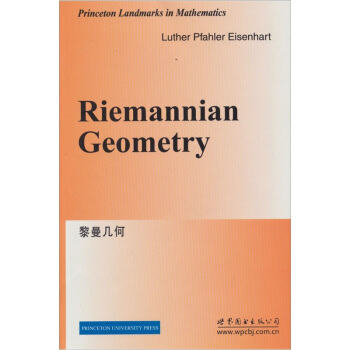

![流體動力穩定性(第2版) [Hydrodynamic Stabilty] pdf epub mobi 電子書 下載](https://pic.windowsfront.com/10914325/rBEGF1DK7x0IAAAAAACR6JXFoB4AAA92ACLziUAAJIA326.jpg)
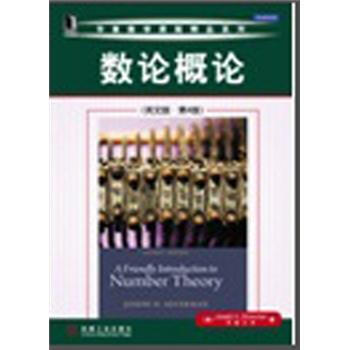
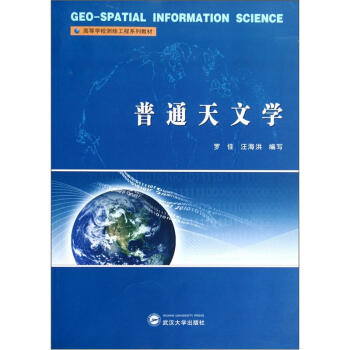
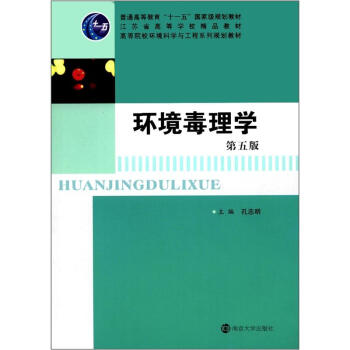
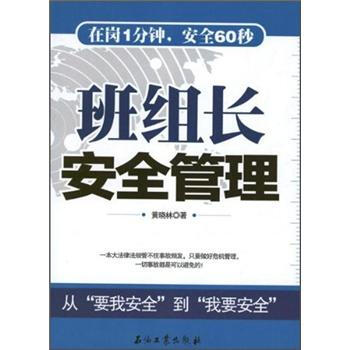
![中外物理學精品書係·引進係列(5)·現代多粒子物理:原子氣體、納米結構和量子液體(第2版)(影印版) [Modern Many-Particle Physics:Atomic Gases,Nanostructures and Quantum Liquids 2nd Edition] pdf epub mobi 電子書 下載](https://pic.windowsfront.com/11163541/rBEHZlD3gCQIAAAAAAe3ocAEJ6QAADqCQBFwiEAB7e5724.jpg)


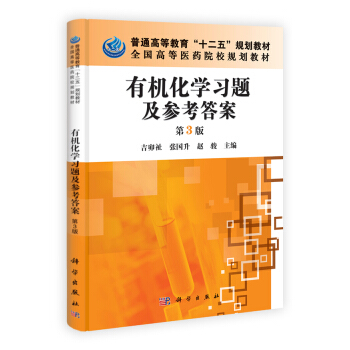
![抽象代數講義(第3捲)(英文) [Lectures in Abstract Algebra 3] pdf epub mobi 電子書 下載](https://pic.windowsfront.com/11308633/rBEhWVIm51EIAAAAAALb5qloKPQAACyDgOSJBIAAtv-533.jpg)
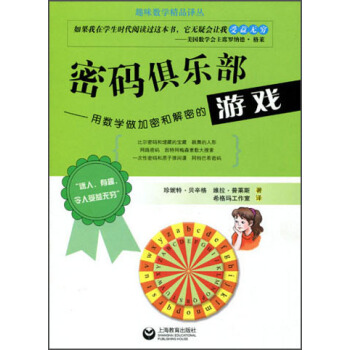
![德熱納:高分子物理學中的標度概念 [Scaling Concepts in Polymer Physics] pdf epub mobi 電子書 下載](https://pic.windowsfront.com/11358882/566e687bN647be089.jpg)
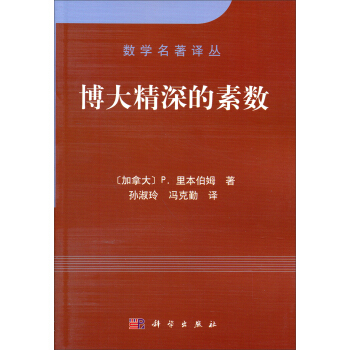

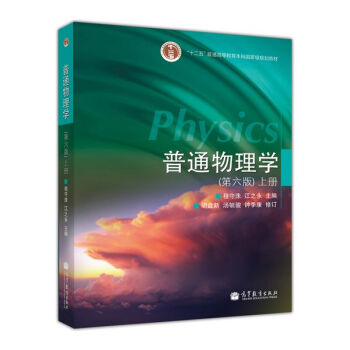
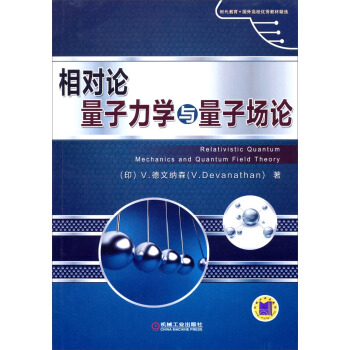
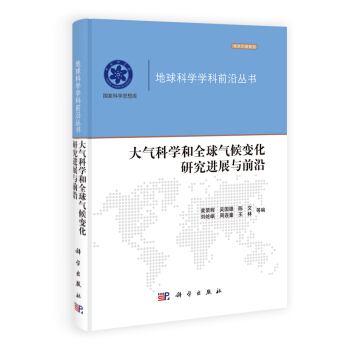
![華夏英纔基金學術文庫·厭氧生物技術(Ⅰ):理論與應用 [Anaerobic Biotechnology (Ⅰ): Theory and Application] pdf epub mobi 電子書 下載](https://pic.windowsfront.com/11541001/5474535eN2c0daae6.jpg)